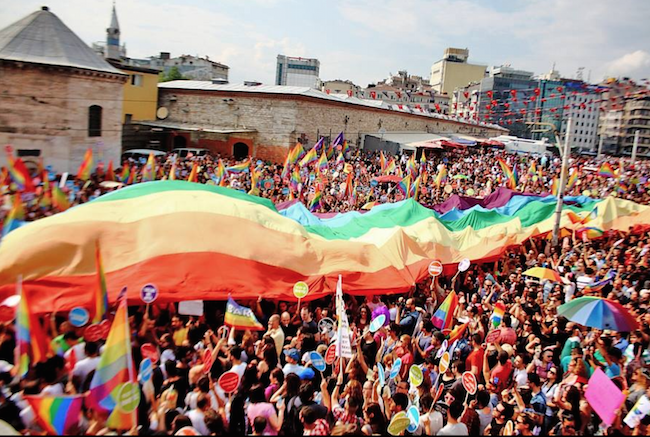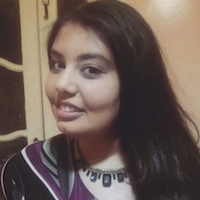
As the Arab Spring wave struck North Africa and the Middle East, the whole world watched this revolutionary uprising in awe hoping that it would finally bring democracy to the oppressed nations.
Along with the democratic upheavals demanding social justice and more political freedoms, the question of LGBT rights rose from several human rights activists and organizations outside, and also within, the Arab world.
In a society heavily influenced by Islamic traditions and values, the subject of homosexuality has remained taboo for a very long time creating a state of collective denial in which these societies deny, or at least fail to acknowledge, the existence of homosexual acts—even though they are widespread in the region.
In the majority of Arab countries, whether they are Sunni or Shiite, the act of homosexuality is punishable by law. The sentences range from imprisonment to flogging, and even the death penalty in countries like Saudi Arabia, Sudan and Yemen. Nevertheless, this hasn’t stopped the flourishing of increased visibility of gay people at all levels of society. In countries like Lebanon, Jordan and Tunisia, homosexuals are making bolder moves to come out of the shadow and promote their lifestyles in public.
Going back to the source, the Islamic view on homosexuality is based on the story of Sodom and Gomorrah narrated in both the Quran and the Bible, where the people of Sodom, known to “approach men with desire, instead of women,” receive divine punishment after persecuting the prophet Lot and sexually harassing the angels.
Nevertheless, the Quran contains no explicit ban on homosexuality nor decrees an earthly punishment for it. In this context, the Turkish journalist and writer Mustapha Akyol says: “The real Islamic basis for punishing homosexuality is the hadiths, or sayings, attributed to the Prophet Muhammad. But the hadiths were written down almost two centuries after the prophet lived, and their authenticity has been repeatedly questioned. Moreover, there is no record of the prophet actually having anyone punished for homosexuality.” He then proceeds to ask a very important question: “Did the people of Lot receive divine punishment for being homosexual, or for attacking Lot and his heavenly guests?”
A quick walk down memory lane paints a very different picture of the Arabic Islamic world that we see now. “Adab” literature, poetry and prose romances attest to an open minded Islamic society where homosexual practices were accepted and common even in the Caliph’s court. Abu Nuwas, one of the greatest Arab poets of all time, was famous for his homoerotic poems where he praised and rued the charms of boys and explicitly described his gay encounters.
During the same period, the Islamic world was ruled by Caliph Al-Amin, an openly gay ruler who even had a male Harem.
Today, no serious study has been made to give us a clear idea on the percentage of LGBT people in the Arab population, but the number of those identifying with these groups is certainly set to rise.
Homosexuals have very little representation in civil society and are still not recognized by governments, which has led to the emergence of a dangerous new phenomena: gay prostitution. Many young homosexuals are either forced or lured to join the prostitution business that is flourishing in the Middle East and especially the Persian Gulf region. Most of these young men have been rejected from their families and haven’t found any guidance or support, which makes them easy bait to all kinds of sexual and physical abusers, and they are more likely to catch sexually transmitted diseases.
However, in recent years a small but noticeable progress in the LGBT situation in the Arab world has emerged. We have several associations like “Helm” in Lebanon and “Shams” in Tunisia who defend gay rights and work on spreading AIDS awareness. The Arab media has also shown a transition in portraying homosexuals who now go on the screen and talk publicly about their lifestyles and the obstacles they’re facing. The last couple of years we have also seen the first gay characters played in Arab cinema, something we could never dream of 10 years ago, with Egyptian films like “Heena Maysara” and “The Yacoubian Building.”
Today, it’s fair to say that the Arabic society is more acceptant of homosexuals than before—of course, this differs from one country to another. The gay experience in countries like Saudi Arabia is different from countries like Lebanon or Tunisia where gays are more open about their sexual identities. Hamed Sinno, the leading singer of “Mashrou’ Leila” one of Lebanon’s most popular music bands, has become a sensation in the Arab world for being the first openly gay Arab singer. His courage to come out in public and his support for the rights of sexual minorities, along with his amazing sensual songs have made him an icon of Arab Rock music and of the LGBT movement.
The supporters of gay rights in the Arab world have a long path ahead and centuries of conservative values and traditions to overcome but the political and social scene is ready and the cause is worth fighting for. We will not be seeing gay marriage anytime soon in the Arab world but progress is happening and with the efforts of LGBT organizations and human rights activists we can reach a point where homosexuals are no longer being punished for who they are and enjoy the same legal rights as everyone else.
Relephant:
Bible forbids Homosexuality?
~
Author: Rihab Hafidhi
Editor: Travis May
Photo: Wikimedia










Read 0 comments and reply